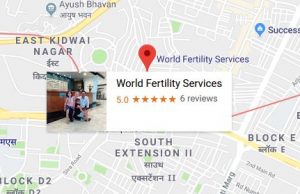Tubal infertility definition and description
Tubal infertility refers to damage of fallopian tubes. The fallopian tube connects ovaries to uterine cavity, releasing mature oocyte from ovary to uterus. A damage or blockage of fallopian tubes, results in ovulation failure, thus preventing conception. The status of fallopian tubes can be detected by application of X-ray based diagnostic technique called hysterosalpingogram. Alternatively, radio-logical imaging, with pelvic ultrasound is used to detect the exact status of organ damage. Other factors contributing to tubal infertility include tubal or neural defect, formation of cyst or fibroids interrupting ovulation frequency.
Treatment approaches in tubal infertility
The treatment of tissue damage and tissue blockage in fallopian tube can be achieved through tubal reversal surgery or IVF. The decision of method to opt for is based upon various factors– female age, sperm quality of the male partner, egg quantity and quality, tubal status, status of pelvic condition.
The best cure in tubal infertility condition includes surgery steps to bring tubal reversal. The tubal reversal is mediated with assistance of images obtained from pelvic ultrasound. The abdominal incision created, to remove tubal damage. The tubal reversal surgery requires rest and recovery is assured in 1-3 week time after achieving tubal reversal.
Merits of IVF
A non-surgery method is IVF. With IVF, you do no need to touch internal organs and can still achieve conception, the main goal. When the age of female is greater that 35 years, egg quality and quantity is diminished and it is better to opt for donor eggs, from an egg donor. Here, tubal surgery will not help since ovarian reserve is poor. Sometimes, there might be male infertility as well. Hence, once again, IVF will be better since sperm will have to fused outside to create embryos. In IVF, the sperm and egg, is isolated in culture medium, and then fertilized to generate embryos. The embryos, thus created are then implanted in womb and implantation success in uterine layer is reached after two day wait period.
Merits of surgery approach on tubal infertility
The surgery procedure in a comprehensive measure that mediates tubal reversal. The successful completion does not require further fertility drugs or GP intervention with medical procedures. The risk of multiple pregnancies is averted, since it is conception with natural methods, after removal of blockage. The associated risk of preterm baby birth & underdeveloped organ development is averted as a bye-result of surgical success. The surgery is non invasive, limiting pain and cramping sensation after completion. Success rates in surgical approach to treat tubal infertility are influenced by age, egg quality and egg quantity represented by ovarian reserve.
Source : http://goo.gl/v1FIP5



 WhatsApp us
WhatsApp us